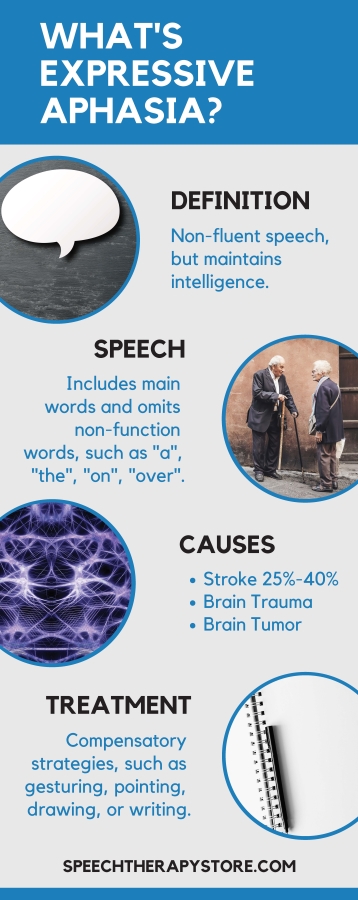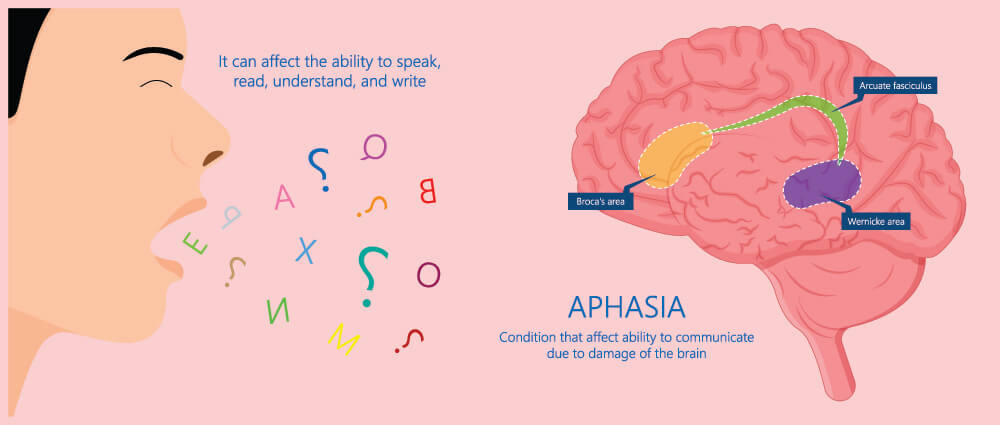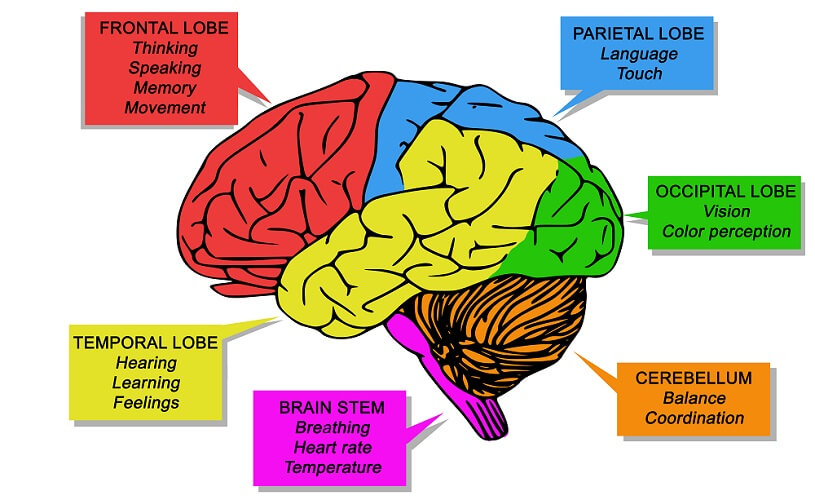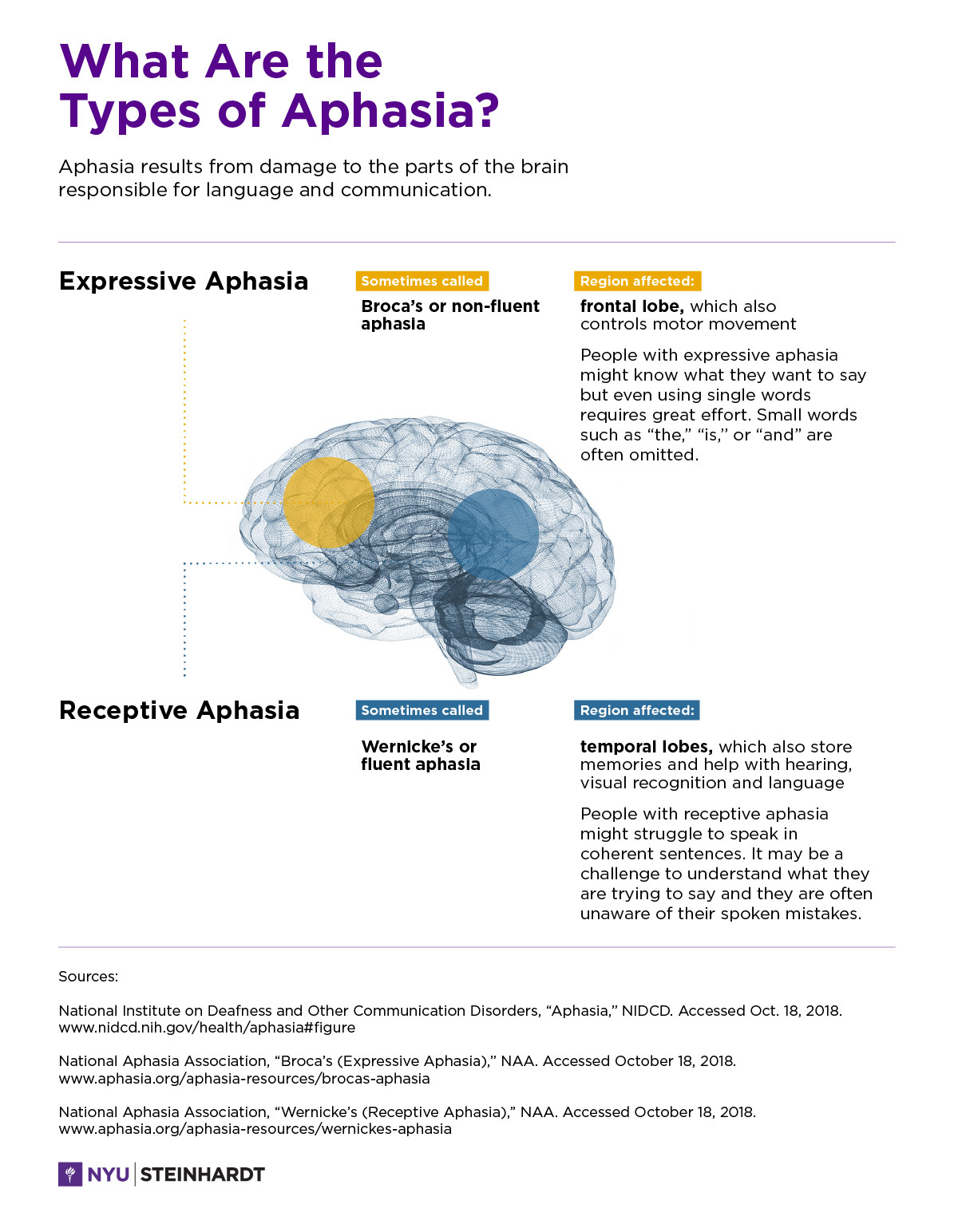- Get link
- X
- Other Apps
- Get link
- X
- Other Apps
10112017 Brocas aphasia or expressive aphasia is when people find it very difficult to find and say the right words although they probably know exactly what they want to say. Aphasia is an impairment of language which may affect a persons ability to comprehend language their ability to express themselves or both.
This is a condition referred to as aphasia or dysphasia.

Expressive aphasia stroke. Designing conducting and completion of larger research activities will require close collaboration between people with aphasia clinicians and researchers. Stroke with expressive aphasia. While it is evident that detection of brief gaps in speech and non-speech stimulus is related to improved phonemic discrimination.
Heres a breakdown of what the terms mean. A neurological change can include a stroke brain tumor brain injury or a degenerative neurological disorder. People with Brocas aphasia may only be able to say single words or very short sentences although its usually possible for other people to understand what they mean.
Aphasia is the medical term for full loss of language while dysphasia stands for partial loss of language. Aphasia and apraxia of speech. 1192021 Generally speaking there are 2 main types of speech problems that occur after stroke.
Aphasia can generally be. 12162018 Expressive aphasia is most commonly caused by a stroke in the Brocas area or the area surrounding Brocas area. The word aphasia is now commonly used to describe both conditions.
At times its hard to distinguish between them especially since its possible for all three to be present at the same time. Brocas aphasia which many people refer to as expressive aphasia is regularly associated with a middle cerebral artery stroke affecting the third frontal convolution of the frontal lobe classical Brocas area Brodmanns areas 44 and 471181932 and extending into the white matter the internal capsule. There are many types of aphasia.
Aphasia involves difficulty producing andor interpreting language caused by damage to a specific area of the brain. Like in other types of aphasia intellectual and cognitive capabilities not related to speech and language may be fully preserved. Reading and writing can be effected as well.
So your type of aphasia depends on how your stroke affects parts of your brain. Expressive or receptive aphasia can occur after stroke and impairs ones ability to express or understand language. A stroke that occurs in areas of the brain that control speech and language can result in aphasia a disorder that affects your ability to speak read write and listen.
When the individual is having difficulty expressing what they want to say It is also possible for a stroke patient to have mixed aphasia a combination of these struggles or global aphasia which is the term for a severe case of both receptive and expressive aphasia. Aphasia is impairment in the ability to use or comprehend words. Patients with acute brain lesions experience classic symptoms of expressive aphasia.
41 In this study aphasia was found to be insignificant to. 10292020 Expressive aphasia is a communication disorder that can make it difficult to produce speech. One of the most common symptoms following a stroke is a disruption to language and communicative ability.
Brocas aphasia results from injury to speech and language brain areas such the left hemisphere inferior frontal gyrus among others. Broca aphasia 333 global aphasia 292 and anomic aphasia 208 are the most commonly found type of aphasia in stroke patients. 1242018 Aphasia apraxia of speech and oral apraxia are communication disorders that can result from a stroke.
Different aspects of language are in different parts of the left side of the brain. The name aphasia implies a total loss of language as compared to dysphasia which is partial loss. Future research endeavors should seek to establish the optimum approach regimen and delivery of SLT for specific patient groups with aphasia after stroke.
Such damage is often a result of stroke but may also occur due to brain trauma. Expressive language disorders cause difficulty in articulating or saying words but there is often good comprehension and understanding of spoken language. However some stroke patients experiencing expressive aphasia have had strokes in other areas of the brain.
It typically occurs as a result of a neurological change or injury to the brain. Its also known as Brocas aphasia because it usually occurs after damage to an area of the brain called the Brocas area.
 Dear Nurses Receptive And Expressive Aphasia Expressive Aphasia Aphasia Therapy Aphasia
Dear Nurses Receptive And Expressive Aphasia Expressive Aphasia Aphasia Therapy Aphasia
 Aphasia Definitions National Aphasia Association
Aphasia Definitions National Aphasia Association
 Living Well After Stroke Or Brain Injury Speech And Language Issues Are Common Craigdailypress Com
Living Well After Stroke Or Brain Injury Speech And Language Issues Are Common Craigdailypress Com
/ms-symptom-aphasia-2440859-01-3d5cca5a69bd4ce7b732bb6e98c04796-8bcac2367885440ebdb69d673c50218d.png) 3 Types Of Aphasia That May Result From Stroke
3 Types Of Aphasia That May Result From Stroke
 The Ultimate Guide To Expressive Aphasia Speech Therapy Store
The Ultimate Guide To Expressive Aphasia Speech Therapy Store
 What Are The Different Types Of Aphasia National Aphasia Association
What Are The Different Types Of Aphasia National Aphasia Association
 One Of The Main Causes Of Aphasia Is Stroke Https Debuglies Com
One Of The Main Causes Of Aphasia Is Stroke Https Debuglies Com
 Aphasia Neurology Medbullets Step 1
Aphasia Neurology Medbullets Step 1
 Expressive Aphasia The Definitive Guide Biology Dictionary
Expressive Aphasia The Definitive Guide Biology Dictionary
 Expressive Aphasia The Definitive Guide Biology Dictionary
Expressive Aphasia The Definitive Guide Biology Dictionary
 Socializing With Aphasia Speech Nyu
Socializing With Aphasia Speech Nyu
 Expressive Aphasia The Definitive Guide Biology Dictionary
Expressive Aphasia The Definitive Guide Biology Dictionary
 Expressive Aphasia Stroke Page 6 Line 17qq Com
Expressive Aphasia Stroke Page 6 Line 17qq Com

Comments
Post a Comment